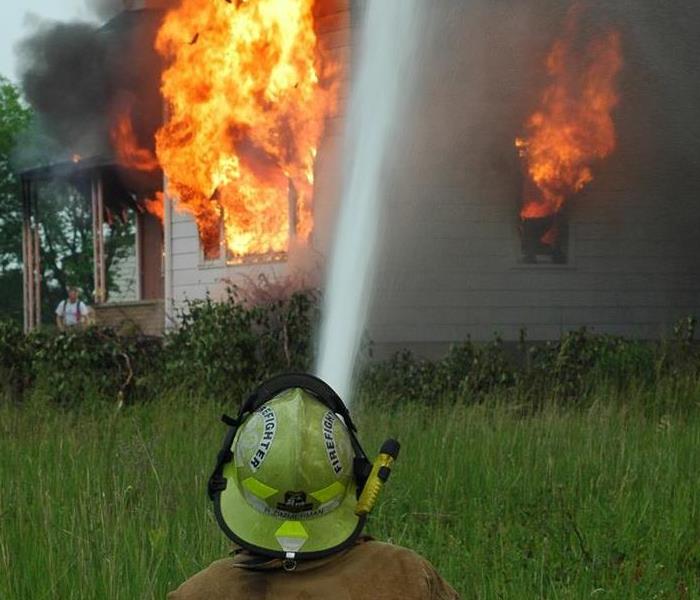Leading Causes of House Fires & How to Avoid Them
9/6/2022 (Permalink)
1. Electrical systems and equipment
- Have your home inspected by a qualified electrician, especially when purchasing an older home.
- Use a qualified electrician when having electrical work done.
- Watch for the warning signs of faulty wiring. These can include blown fuses, visibly damaged wiring, discoloration around outlets, flickering lights or burning odors.
- Protect your home against arc faults. An arc fault occurs when an electrical short produces an arc: intensely hot sparks that can set fire to nearby flammable materials. Arcs often happen in appliance or extension cords that have become frayed or cracked.
- To prevent arc faults, have Arc Fault Circuit Interrupters (AFCIs) installed in your home. These devices look and work like conventional circuit breakers. When an AFCI detects an arc, it shuts off the circuit.
- Power surges can damage appliances and even cause fires. Protect your home with a two-tiered surge protection system: a whole house surge protection device (SPD) on the main electrical service to the home, and point-of-use SPDs for all valuable electronics and appliances.
- Smart sensor devices can help detect the invisible dangers lurking in your home.
2. Heating equipment
- Consider replacing older space heaters with new ones that turn off automatically when overheated or tipped. Keep them at least three feet away from anything flammable.
- Have furnaces and chimneys professionally cleaned and inspected every year.
- All fireplaces should have a sturdy screen. Never use flammable liquids to start a fire in a fireplace. Allow ashes to cool completely and use a metal bucket for disposal.
3. Cooking fires
- Be alert. If you are sleepy or have consumed alcohol, don't use the oven or stove.
- Stay in the kitchen while you are frying, grilling or broiling food. If you need to leave the kitchen for even a short period of time, turn off the oven or stove.
- If you are simmering, baking, roasting or boiling food, check it regularly. Remain in the home while food is cooking, and use a timer to remind you that you are cooking.
- Keep your stovetop clear of anything that can catch fire, including oven mitts, wooden utensils, food packaging, towels or curtains.





 24/7 Emergency Service
24/7 Emergency Service
